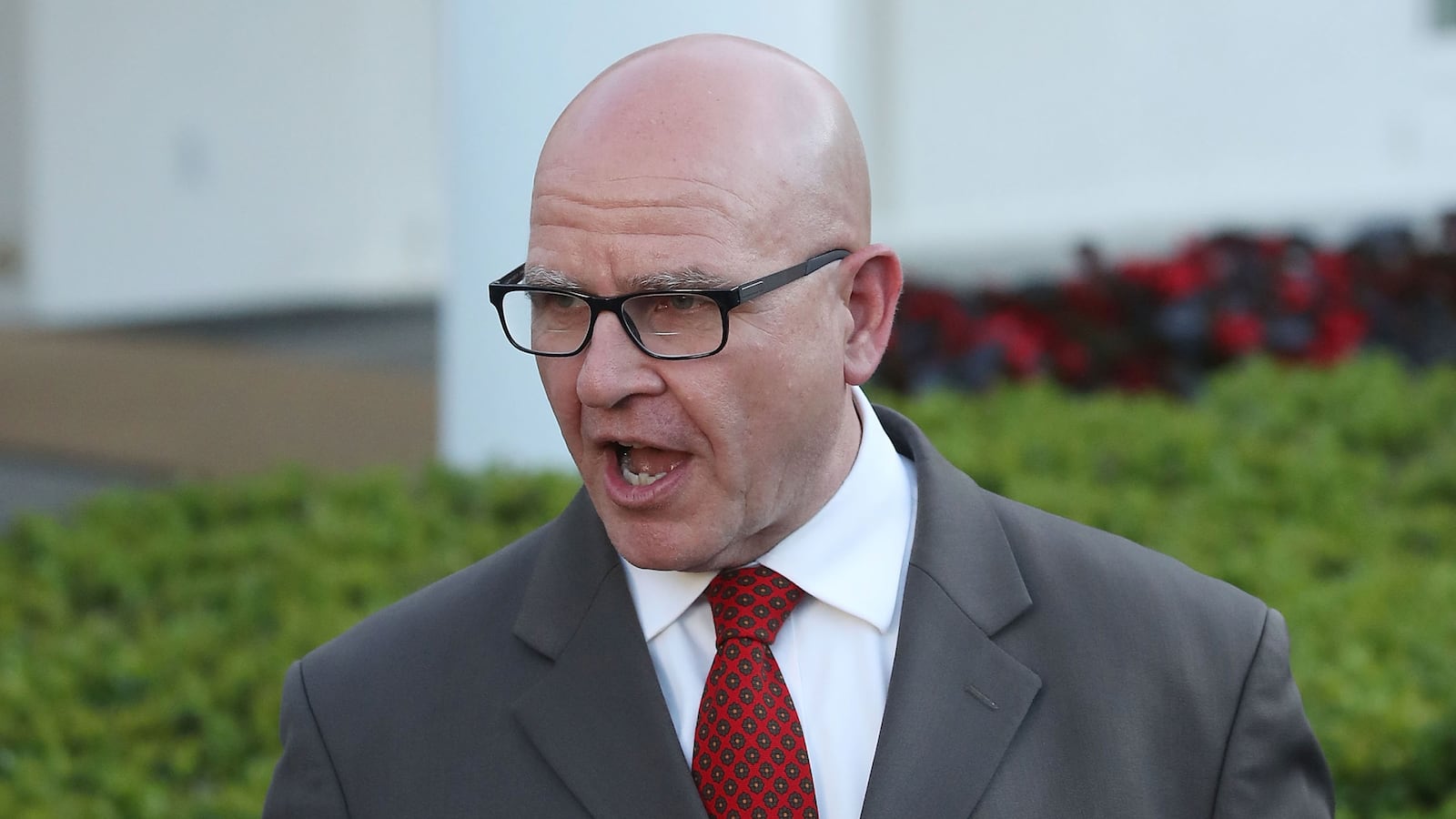In a speech Sunday night to the American Jewish Committee, National Security Adviser H.R. McMaster solidified his reputation as one of President Donald Trump’s more effective spear catchers and messengers, earning two sustained rounds of applause from a crowd that definitely was not part of Trump’s Election Day base.
Mind you, McMaster is the man the president has reportedly derided as a “pain” for talking too much and for possessing an inconvenient and unwelcome penchant for nuance.
Speaking to the AJC in the wake of the most recent spasm of deadly Islamic-driven terror, McMaster offered his “heartfelt” condolences and “thoughts and prayers” to America’s “brothers and sisters” in England and Afghanistan. McMaster, a three-star general, reiterated America’s commitment to our NATO allies and Article V, the principle of collective defense that “is at the very heart of NATO’s founding treaty” but the very words Trump himself won’t utter. On the eve of the 50th anniversary of the Six-Day War, McMaster also heaped praise on Israel, recalling that in June 1967 Israel faced a far greater threat than America does now, while noting the possibility of Israel forging new alliances with Sunni Arab states as a counterweight to Iran.
McMaster’s tone was thoughtful, measured, and forceful, but not bombastic. In other words, his tenor was anything but Trumpian. His message to a room filled with suits, ties, dresses, and scarves at the end of a weekend was balanced: No shout-outs to America First in foreign policy, no mention of travel bans, and no calls for an end to political correctness. McMaster even left the listener wondering if he had bothered to clear his prepared speech with the president and the White House staff.
At the outset of his talk, McMaster conceded that confronting today’s challenges required “humility,” a trait not readily apparent in Trump. McMaster also observed that America tends to view its national experiences as unprecedented, too often without looking back in time. As a reminder, McMaster commented that while history may not actually repeat itself, it definitely “rhymes.”
For that single moment, one could almost forget Trump’s tendency to speak in a sea of superlatives, from his self-reverential use of the words “greatest,” “smart,” “tough,” and “huge,” to his castigating his adversaries as the “worst,” “weak,” and “stupid,” to proclaiming that the world is a “mess” and only that he, Donald Trump, is capable of fixing it. That is, for only a moment.
The reality is that McMaster’s dose of rhetorical sobriety came as a coda to a terror-filled Saturday night in London and the ensuing Trump tweetstorm. As Kimberly Dozier and Noah Shachtman wrote just days ago in The Daily Beast, it would be fair to argue that McMaster, an active-duty officer, was being showcased for his military rank and gravitas.
In the face of the latest set of revelations surrounding Jared Kushner and his intersection with Russia, McMaster vouched for Kushner, Trump’s son-in-law and White House colleague, claiming that he was “not concerned” by Kushner having purportedly broached the topic of “back-channel communications,” though other military professionals said that if the allegations were true, Kushner had ventured far beyond “discreet diplomacy.”
During the president’s trip to Israel, Trump excluded McMaster from the president’s meeting with Kushner, Israeli Prime Minister Benjamin Netanyahu, and his own national security adviser. Indeed, according to Israeli reports, at some point, U.S. Secretary of State Rex Tillerson was invited to join the meeting, while “McMaster sat outside the King David room during the course of the entire meeting.”
Back in March, the president overrode McMaster’s decision to transfer Ezra Cohen-Watnick from his position as the NSC’s senior director for intelligence programs, after Cohen-Watnick rallied Kushner and Steven Bannon to his cause. The president also continues to lament the departure of Gen. Mike Flynn, McMaster’s predecessor.
Still, McMaster’s mark appears to go beyond rhetoric, as he has already left his imprimatur on U.S. policy. Even as McMaster full-throatedly commended Israel for its perseverance, he has successfully opposed moving the U.S. Embassy from Tel Aviv to Jerusalem. Although candidate Trump had vowed to make the move, on June 1 he issued a waiver and announced, like previous U.S. presidents, that the embassy would not be vacating its premises in Tel Aviv.
Clearly, Gen. McMaster represents needed continuity to an administration that appears unsure of itself and that prizes audacity and disruption for their own sake. Whether McMaster ultimately stays or goes remains a matter of speculation. But as things continue to heat up at the Trump White House with no signs of abating, we can expect to see more, not less, of H.R. McMaster.
The author served as staff secretary to President George H.W. Bush’s 1988 Middle East policy group.






